Barefooted rickshaw puller
India
The rickshaw, which is an active part of daily life, exists only in Kolkata anymore.
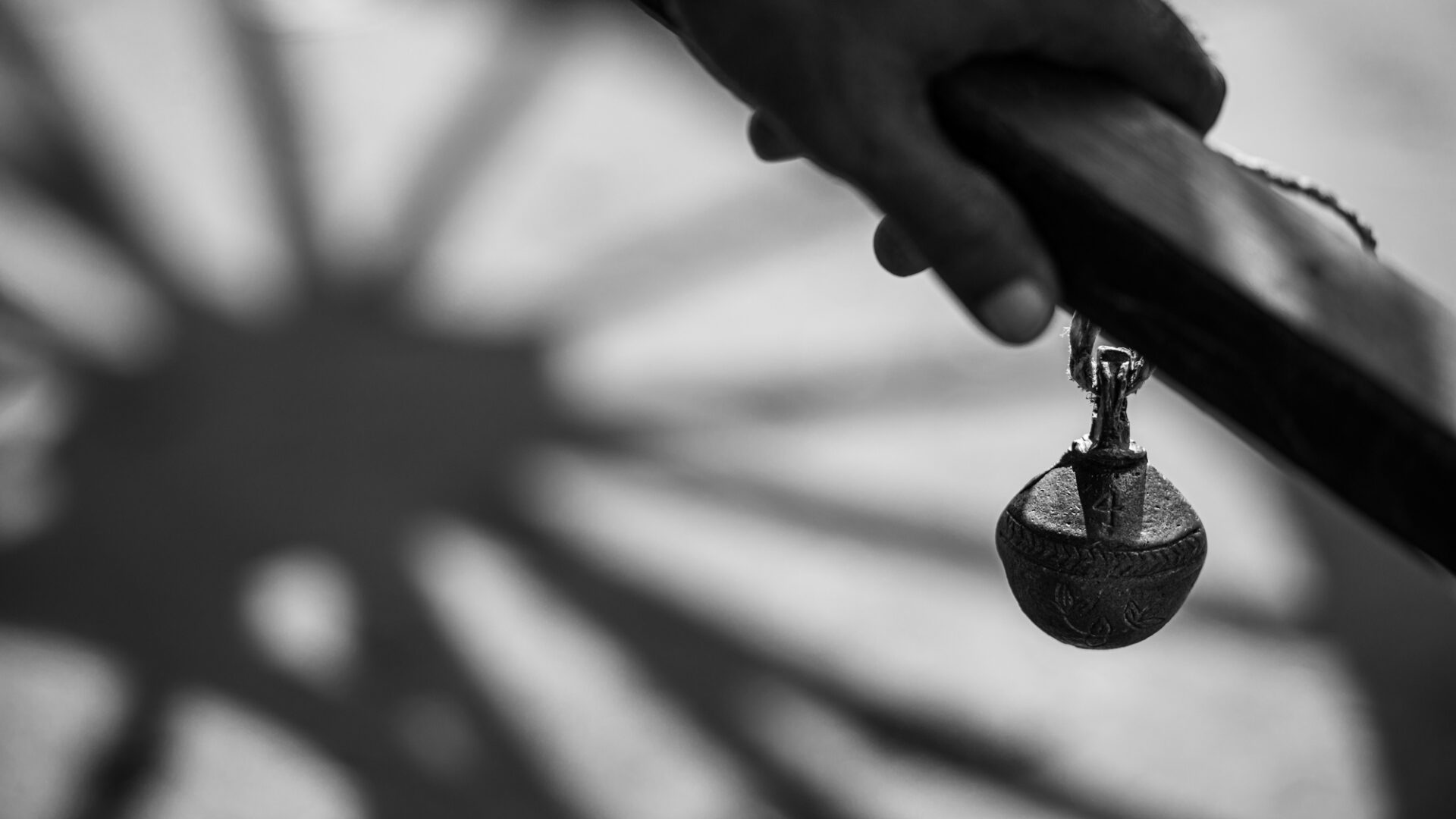
India was a British colony for a long time and endured humiliation. After independence from Britain, Kolkata was flooded with millions of refugees from East Pakistan (present-day Bangladesh). Without housing or food, many people died on the streets every day. Politicians and others dislike rickshaws because they see them as an outdated vehicle that reminds them of India's poor past.
For this reason, no more licenses for rickshaws have been issued since 1945. Therefore, most rickshaws are unlicensed.
Most rickshaw drivers are migrant workers from Bihar state. As such, they do not have the right to vote in Kolkata and cannot challenge the law. Bihar is the poorest state in India. Even with the low wages and harsh conditions of rickshaw pulling, it is better to migrate to Kolkata for work.
Rickshaws are a symbol of Kolkata's rich history and culture. They are also a reminder of the city's struggle to overcome poverty and discrimination. While the future of rickshaws in Kolkata is uncertain, they remain an important part of the city's landscape.
(The bell in the photo is a substitute for a horn.)
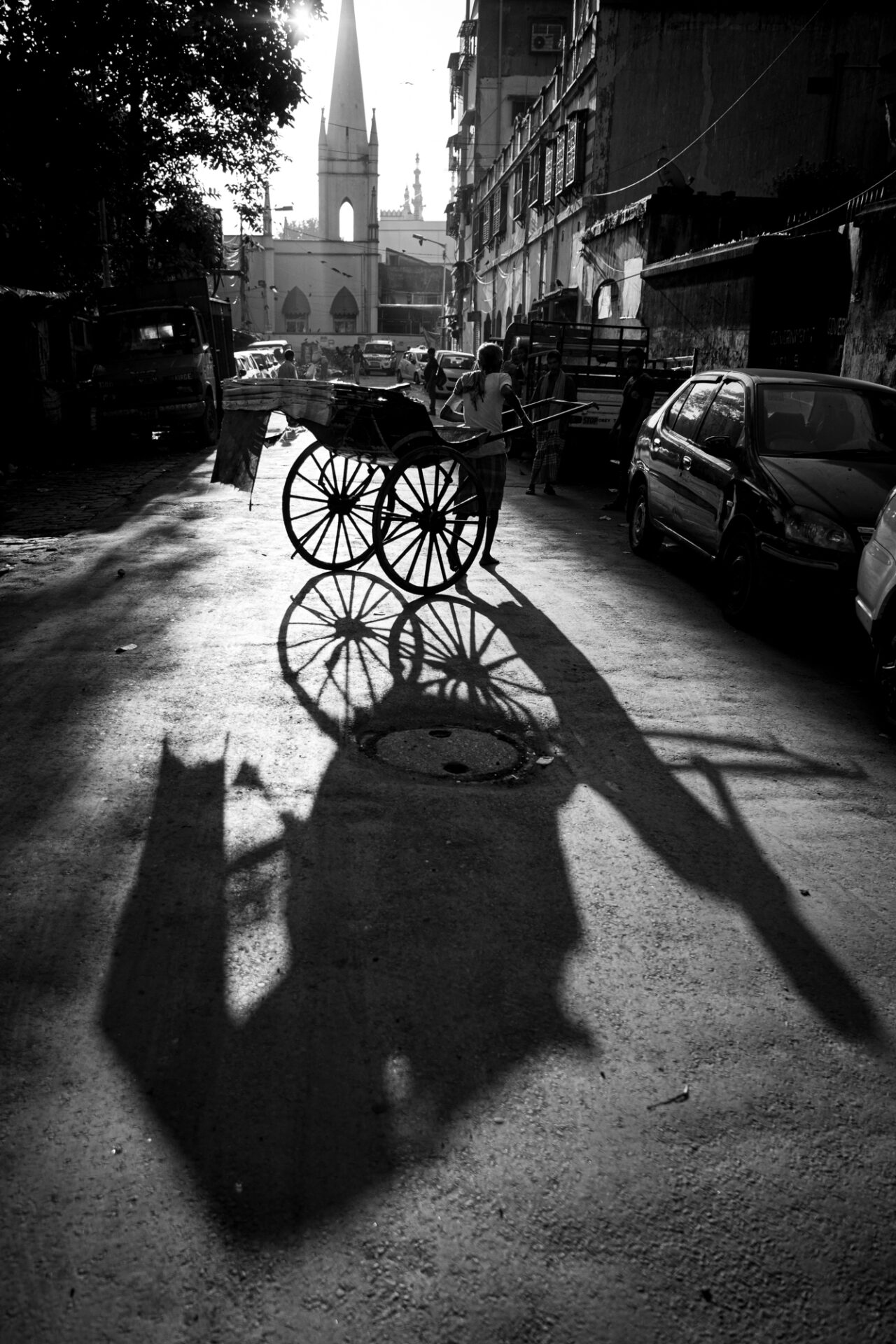
They work from early in the morning.
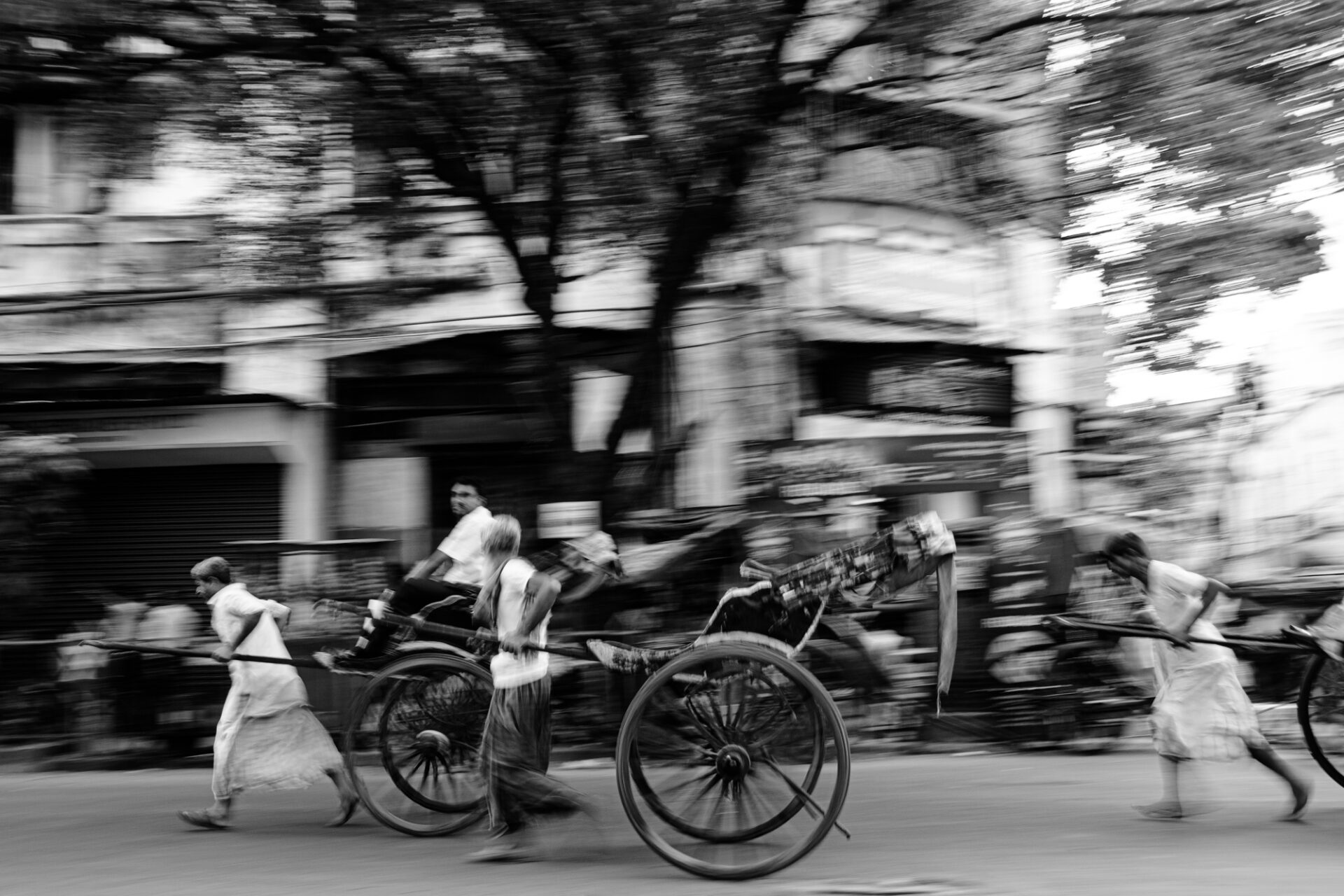
Local governments are increasingly narrowing
the area they are allowed to run.
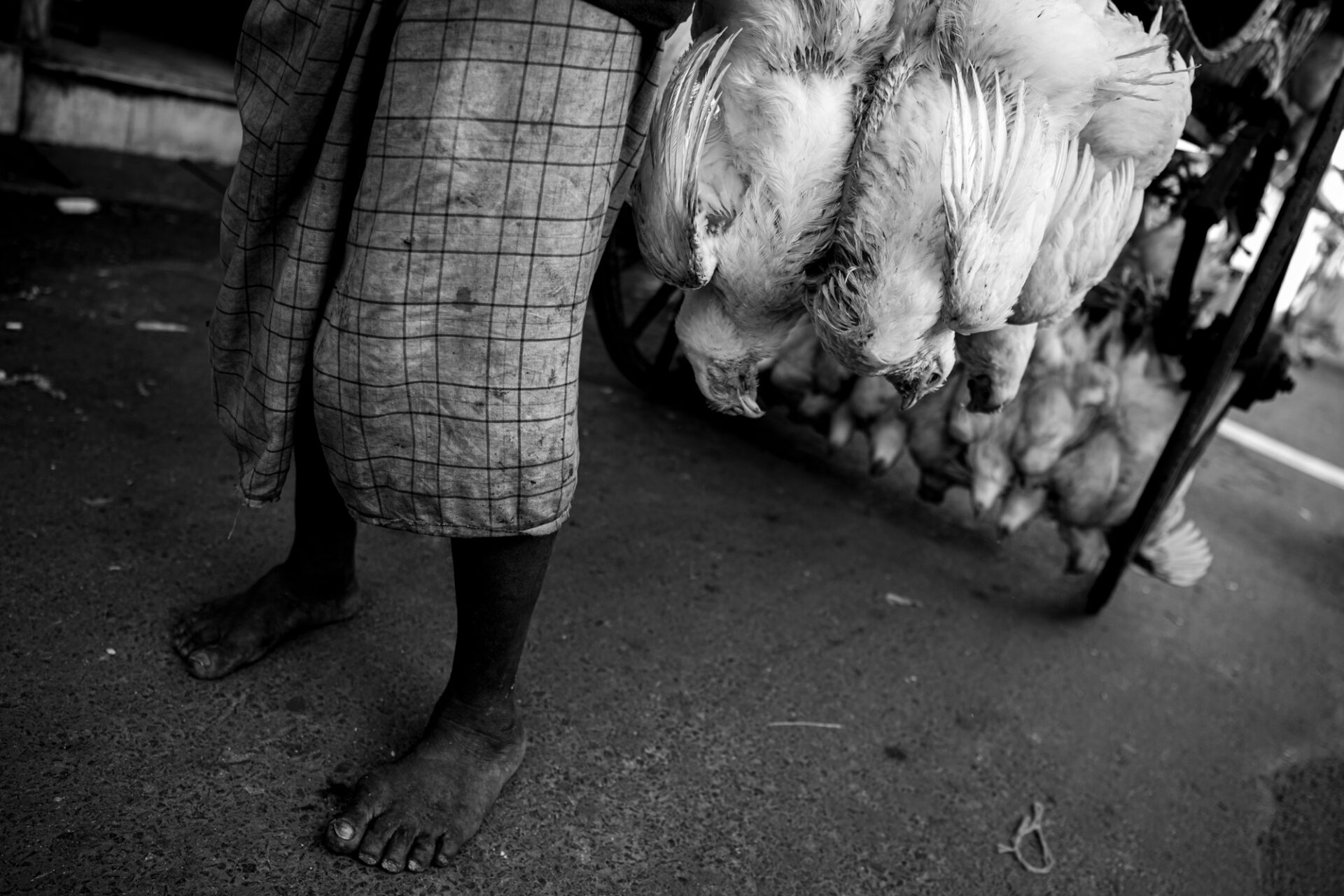
Transport dozens of chickens to the restaurant.
They carry everything, from restaurant supplies, furniture, to school runs for children and shopping assistance for housewives.
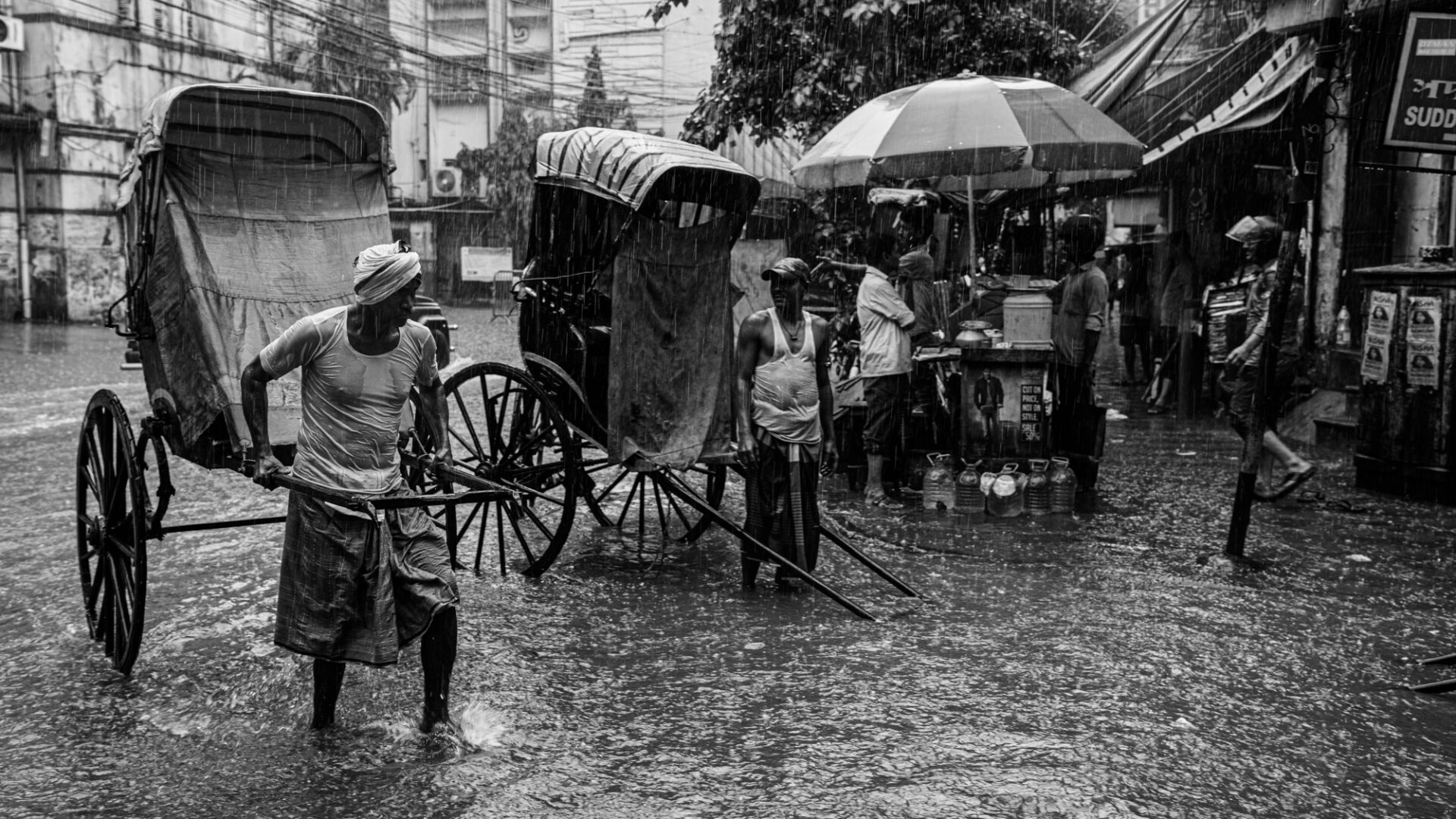
During the monsoon season,
it can be flooded up to the thighs.
Rickshaws can move where automobiles cannot go.
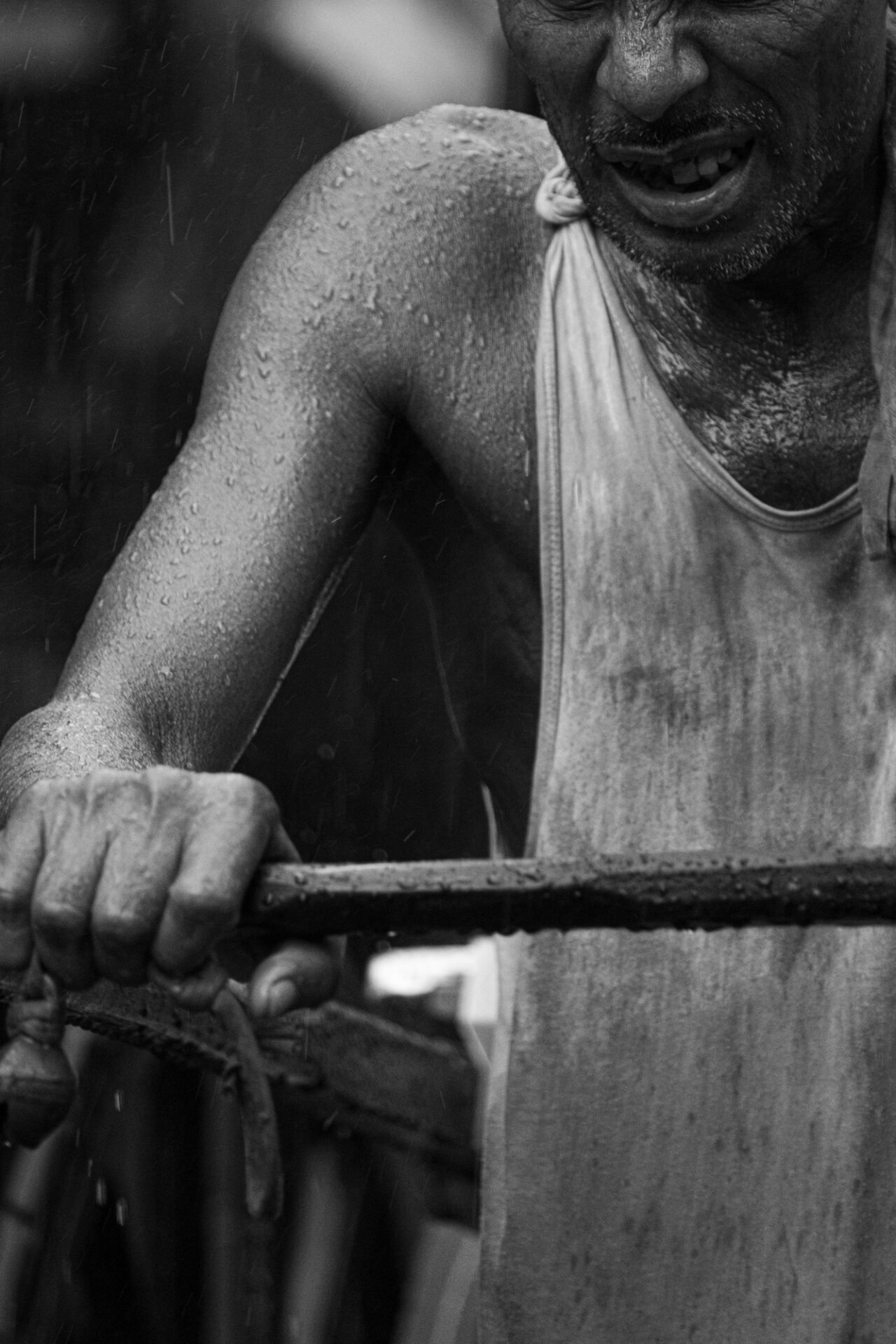
Running in heavy rain.
They make about 150 rupees (about $2) a day.
They have to pay for the use of the rickshaws,food, lodging, and sometimes bribes to the police.
(The above amount is for the interview conducted in 2015.Individuals differ.)
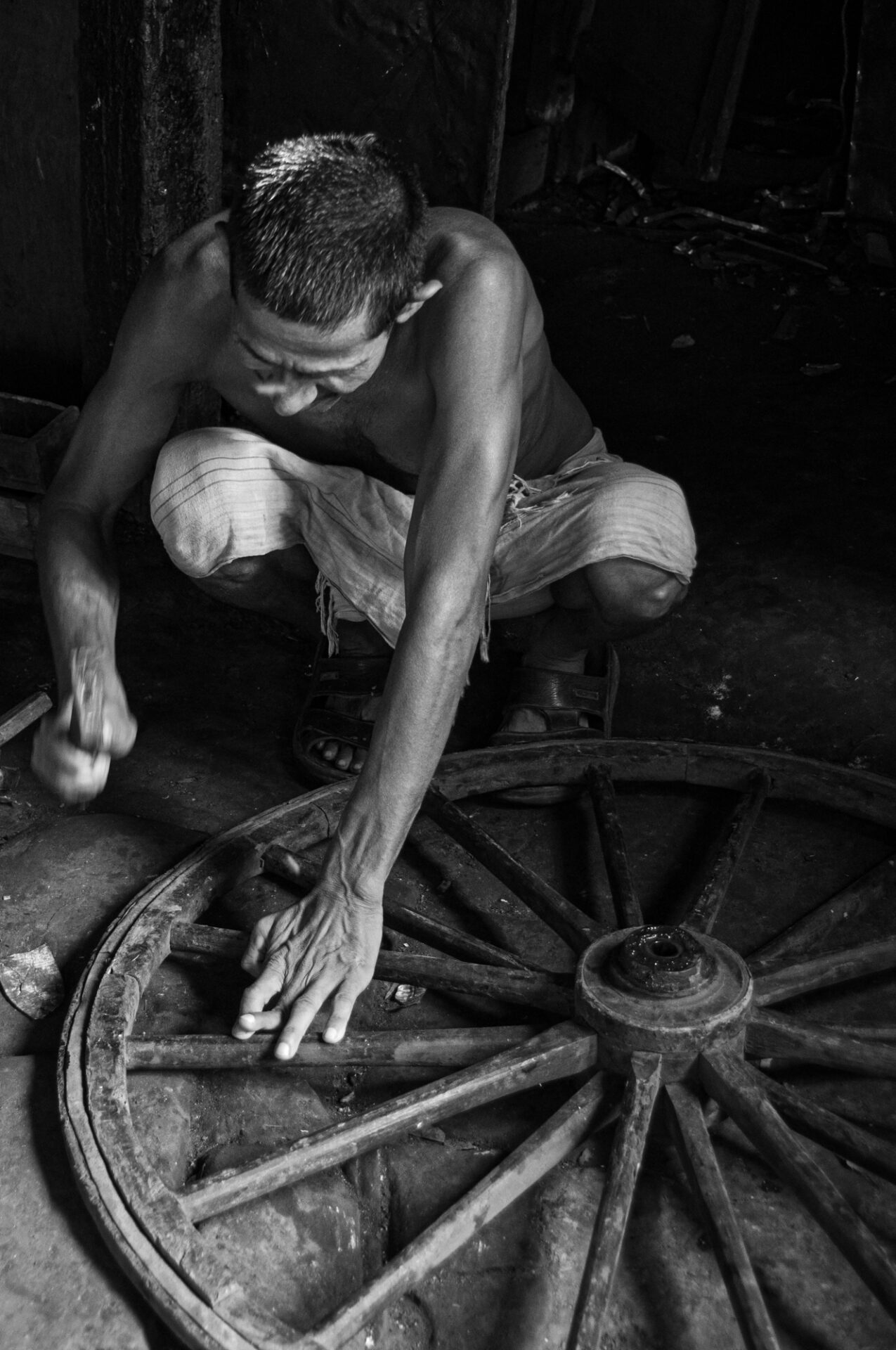
He repairs rickshaws to make a living, but he said he couldn't afford to fix his broken finger.
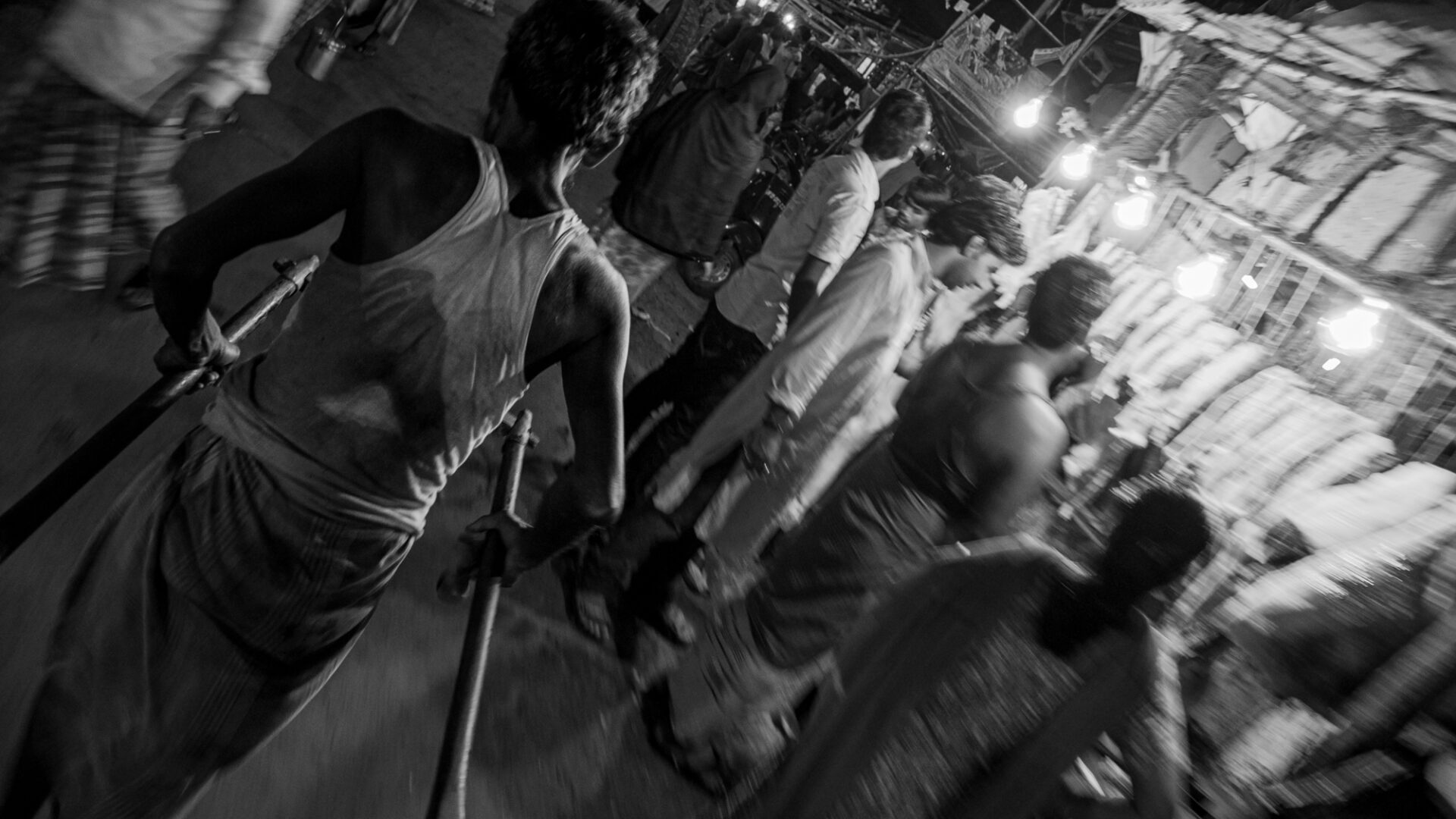
They work until late at night.
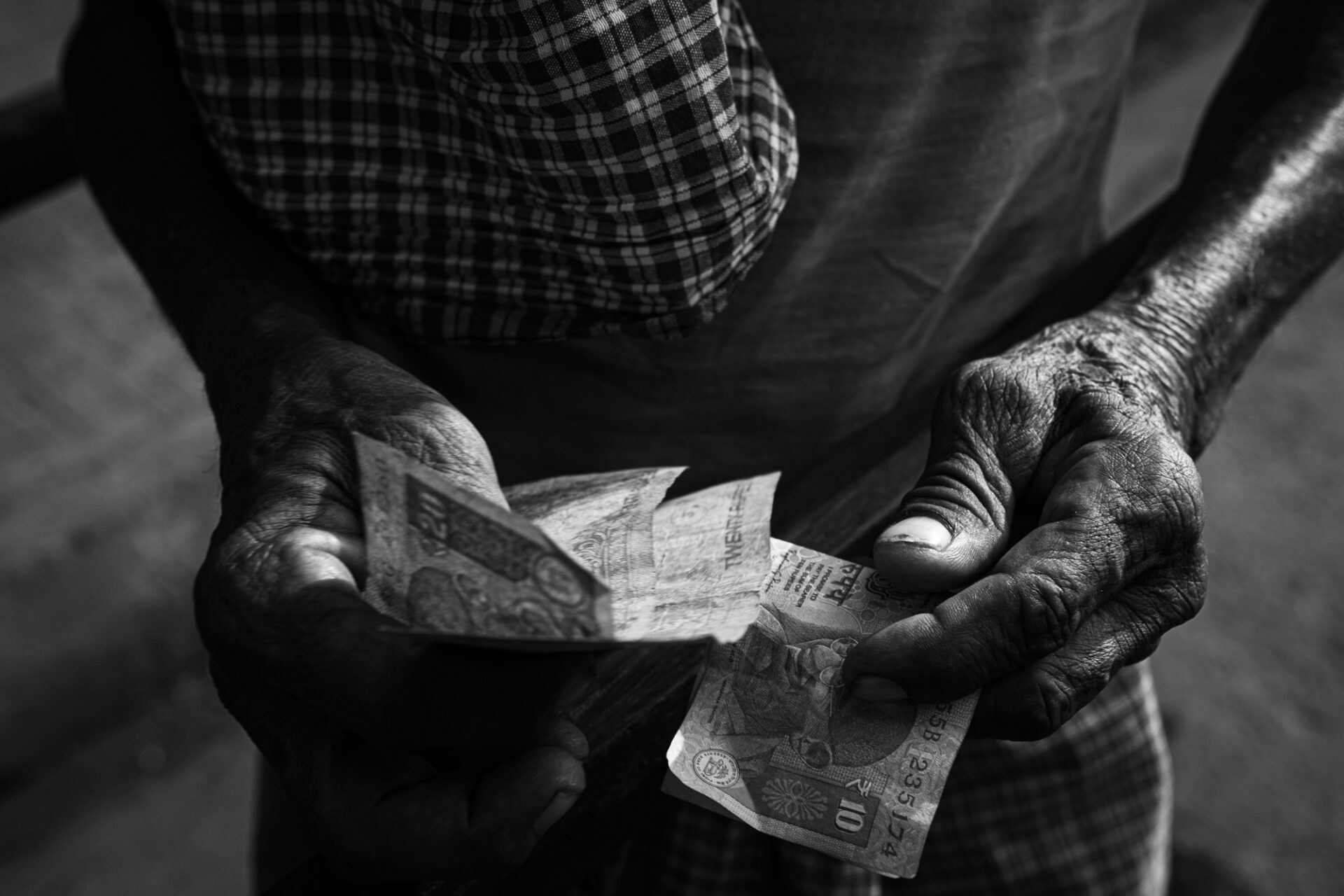
When he receives money from a client, he thanks and prays.
He sends most of the money he earns back to his family.
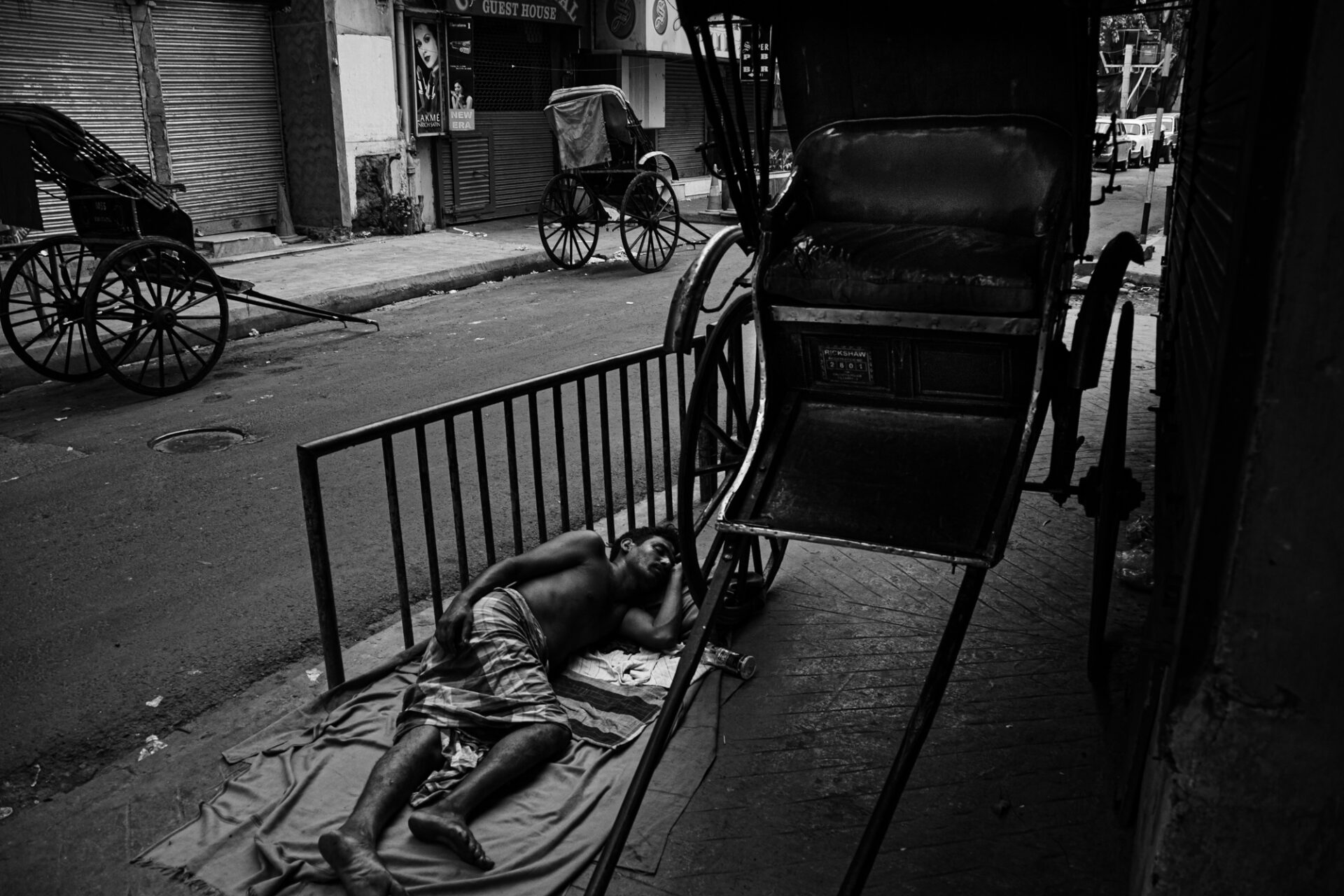
5:00AM
To save money on lodging in Deras, they sleep on the street. Their only bedding is a thin piece of cloth.
(Della is a dormitory exclusively for them.)

India's first Prime Minister, Mr. Nehru, aimed for a moderate form of socialism.
Unlike capitalism and economicism, ideologies that give rise to disparities, this philosophy still holds strong popularity in Kolkata.
However, as evident from the lives of rickshaw pullers, in reality, the wealth gap continues to widen.
It was very heavy even without people on it.
Since most of the workers are barefoot, I tried pulling the rickshaw with my bare feet.
When barefoot, the road was as hot as a frying pan, and pebbles stuck into my feet like nails.
It is like torture.
I was impressed by their toughness and strong legs.
The government says that rickshaws are a symbol of poverty.
Others say they are rats infesting the city.
To me they looked like firemen, a symbol of strength.
In 2020, a disease from China spread to Kolkata.
Their income will decrease further because people cannot go out. I am worried about what will happen to them.
And the government is narrowing their business area year by year.
In Japan, rickshaws are active in tourist attractions.
Is it impossible to use them to help revitalize local communities?
I wonder if we can simplify their fees and incorporate them into Kolkata's tourism resources.
Also, they will be a necessity for the city, considering that they are carbon-neutral.
